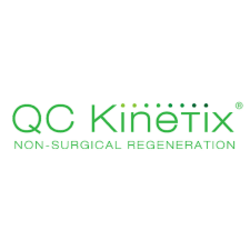The Popularity of Activated Charcoal
You may have noticed black toothbrushes, face masks, and even foods popping up lately. These are all created with activated charcoal. This charcoal isn’t the type you’d use to barbecue — it’s activated through high temperatures combined with gas so it expands.
It’s this porous structure that makes charcoal useful. Activated charcoal can bind to molecules in a process called adsorption, not absorption, and take them out of your body. This is the basis of activated charcoal’s popularity as a toxin-reducing product.
Does Charcoal Reduce Toxins?
It’s hard to say what a toxin is, exactly — it’s a broad category for any potentially harmful substance. Activated charcoal also can’t differentiate between a toxin and other adsorbable molecules. Though it does bind to harmful molecules, it can also bind to helpful ones.
If you’re trying to target a specific toxin by consuming activated charcoal, you may end up getting rid of important nutrients or reducing the effectiveness of medications instead. This can affect your bodily functions and put you at risk.
There are also some molecules that activated charcoal can’t absorb, so it can also be ineffective for certain uses.
What Activated Charcoal Can Do
Charcoal is often hailed as a cure or treatment for many conditions, but only some of these are supported by research. The various uses of activated charcoal are still being investigated, but there are some promising leads.
It Might Be a Poisoning Antidote
One of the oldest uses of activated charcoal is as a treatment for poisoning. A French chemist, Michel Bertrand, demonstrated the effectiveness of charcoal for poisoning in 1813, when he drank five grams of arsenic trioxide mixed with activated charcoal and survived.
But administering charcoal at home for cases of poisoning is likely to be ineffective. The activated charcoal used in the ER is different from the kind you can buy in stores. There are also some substances that charcoal can’t be used for, so leave the poison treatment to medical professionals. In the case of a poisoning, call 1-800-222-1222 to contact the Poison Control Center for professional help.
It Might Prevent Gas
Some studies have shown that the porous nature of activated charcoal may be able to trap gas molecules, its effectiveness further increased by medicines that break apart gas bubbles.
While some studies have shown the promising nature of activated charcoal for gas prevention, other studies have cast doubt on its effectiveness.
It Can Potentially Reduce High Cholesterol
Activated charcoal can bind to cholesterol and acids in the gut that can prevent your body from absorbing them, which could help to reduce these levels. While some studies have shown that activated charcoal can help with cholesterol, the results are mixed overall. Right now, it’s unclear whether activated charcoal actually helps with cholesterol.
What Activated Charcoal Can’t Do
Prevent Hangovers
Though activated charcoal can bind to many toxins and help to purge them from your body, alcohol isn’t one of them. Activated charcoal physically can’t bind to chemicals in alcohol that affect you, so it isn’t going to keep you from feeling ill the next day.
Consuming charcoal for hangover prevention could actually be dangerous. If you drink to the point of vomiting, the charcoal could get stuck in your lungs or airway, potentially leading to a lung infection or inflammation.
Whiten Your Teeth
A desire for easy at-home teeth whitening methods has created a huge market for products — recently, activated charcoal toothbrushes, toothpaste, and whitening methods have become a common sight in the tooth care aisle. But dentists like Dr. Douglas Wirth can’t emphasize enough the harm that activated charcoal can do to your teeth. Activated charcoal is highly abrasive and scratches your enamel. This can lead to cavities and oral disease, as well as exposing the yellow dentin layer of your teeth.
Due to this, your teeth may end up looking even more yellow in the long run. For teeth whitening, it’s best to stick to methods that have been shown to work, like professional whitening or white strips.
Charcoal As a Beauty Product
Aside from teeth whitening, one of the other most common uses for activated charcoal is as a beauty product. Studies haven’t really been conducted on its effects on the skin, but charcoal masks with good ingredients are said to help with its appearance. However, there have been adverse reactions reported such as chemical burns, rashes, and pain. These may be due to other ingredients, but for the moment it’s unclear.
The Risks of Activated Charcoal
Drug Interactions
Activated charcoal for health products isn’t regulated by the U.S. Food and Drug Administration, so it’s best to consult a medical professional before you start using it. If you take certain medications, activated charcoal could make them ineffective or even cause harm.
Potential Side Effects
Taking activated charcoal by mouth is usually safe, but in some cases, it can cause side effects. Some of these effects include:
• Vomiting
• Diarrhea
• Constipation
• Black stools
• Discolored tongue
The U.S. Department of Health banned charcoal from New York restaurants in 2018, as the city was experiencing a boom in trendy black-colored foods.
Should You Use Activated Charcoal?
Overall, activated charcoal is safe for you to use for your health and beauty. If you’re using activated charcoal for face masks, soaps, shampoos, and other external products, then you don’t need to worry — only when ingested can it cause serious issues. It’s unclear how the extent that activated charcoal actually helps in many situations. But as long as you’re careful with the way you use it, activated charcoal shouldn’t cause too much harm.








